Is it Proper for a President to Render a Military Hand Salute?
In this TexasGOPVote classic, Bob Price discusses the presidential salute.
Update: For the video where Obama salutes Marines with a coffee cup, click here.
When President Obama awarded the Congressional Medal of Honor to a rare living recipient of that award last year (Army Staff Sgt. Salvatore Giunta), a friend contacted me and stated he was quite offended that President Obama did not salute Sgt. Giunta. I went back and looked at the video and sure enough, he did not. In fact, he hugged Sgt. Giunta. I went back and looked at previous presidents who awarded the Medal of Honor and sure enough, they did not salute the recipients either. Hmmm...
For those who are not aware, a military member who has received the Medal of Honor rates a salute from any other military member regardles of rank. If an army private has received our nation's highest honor, a general must salute him (the medal actually). So why are these presidents, as Commander in Chief (CINC) not saluting the Medal recipients? Even President Dwight David Eisenhower (a retired 5 star general) did not salute the members of the military to whom he presented the medal.
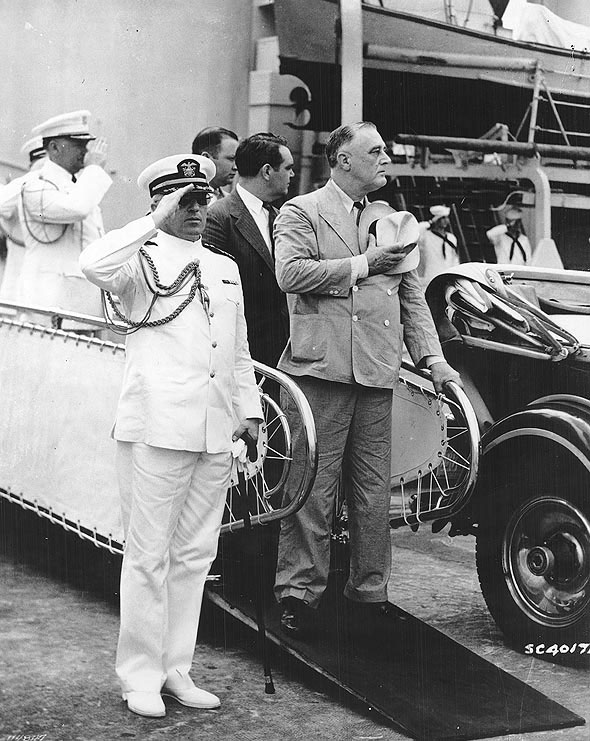 The answer is quite simple. The President of the United States is a civilian. He is not a member of the US Military and is therefore not entitled to salute. The military salute is a privilege earned by honorable service in the military. It is also a privilege that can be taken away. Military prisoners are stripped of the privilege of saluting. While the President is Constitutionally the CINC, he is not a member of the military.
The answer is quite simple. The President of the United States is a civilian. He is not a member of the US Military and is therefore not entitled to salute. The military salute is a privilege earned by honorable service in the military. It is also a privilege that can be taken away. Military prisoners are stripped of the privilege of saluting. While the President is Constitutionally the CINC, he is not a member of the military.
One of the core principles of our country is our military is under civilian control. The President is that civilian authority over the military as is the Secretary of Defense and the Secretaries of the branches of the armed services.
In 2007, Northwestern University History Professor Emeritus Garry Willis wrote in the New York Times, "The glorification of the president as a war leader is registered in numerous and substantial executive aggrandizements; but it is symbolized in other ways that, while small in themselves, dispose the citizenry to accept those aggrandizements. We are reminded, for instance, of the expanded commander in chief status every time a modern president gets off the White House helicopter and returns the salute of marines."
"We used to take pride in civilian leadership of the military under the Constitution, a principle that George Washington embraced when he avoided military symbols at Mount Vernon. We are not led -- or were not in the past -- by caudillos," Willis continued.
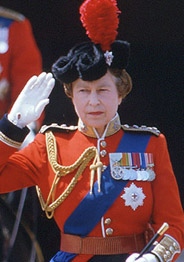
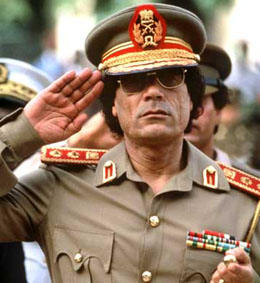 In many countries this is not the case. The leader of the country is actually a uniformed member of the military. In some cases even a military dictator. Even the Queen of England is a uniformed member of the military, albeit a figurative position.
In many countries this is not the case. The leader of the country is actually a uniformed member of the military. In some cases even a military dictator. Even the Queen of England is a uniformed member of the military, albeit a figurative position.
So, all that said, where does the tradition of saluting by the president come from? Many believe it began with President Ronald Reagan. He certainly was the first to consistantly exercise the hand salute, but during my research I also found a photograph of President Franklin Roosevelt engaging in what appears to be a hand salute. More frequently he was shown saluting by placing his hand, or hat, over his heart as in the photo above.
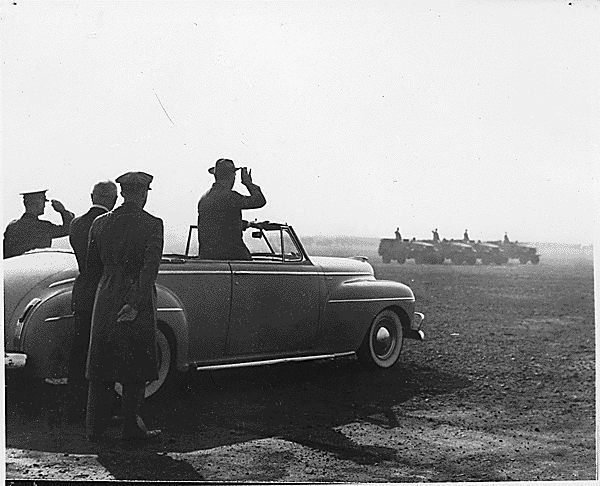
About the tradition, Ronald Reagan said,
I never ceased to enjoy reviewing our men and women in uniform and hope I started a new tradition for presidents. As Commander In Chief, I discovered it was customary for our uniformed men and women to salute whenever they saw me. When I'd walk down the steps of a helicopter, for example, there was always a Marine waiting there to salute me.
I was told presidents weren't supposed to return salutes, so I didn't, but this made me feel a little uncomfortable. Normally, a person offering a salute waits until it is returned, then brings down his hand. Sometimes, I realized, the soldier, sailor, Marine, or airman giving me a salute wasn't sure when he was supposed to lower his hand. Initially, I nodded and smiled and said hello and thought maybe that would bring down the hand, but usually it didn't. Finally, one night when Nancy and I were attending a concert at the Marine Corps Headquarters, I told the Commandant of Marines, "I know it's customary for the President to receive these salutes, but I was once an officer and realize that you're not supposed to salute when you're in civilian clothes. I think there ought to be a regulation that the president could return a salute inasmuch as he is commander in chief and civilian clothes are his uniform. 'Well, if you did return a salute,' the general said, 'I don't think anyone would say anything to you about it.'
The next time I got a salute, I saluted back. A big grin came over the Marine's face and down came his hand. From then on, I always returned salutes. When George Bush followed me into the White House, I encouraged him to keep up the tradition."
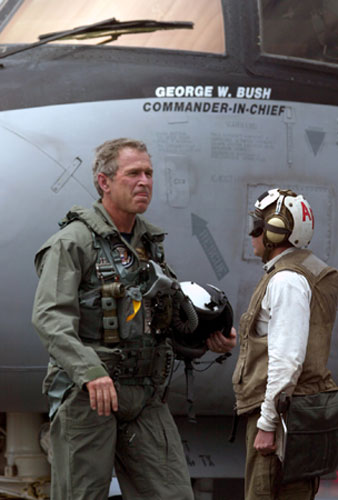 Since that time, we have begun seeing presidents becoming more "paramilitary" by donning pieces of the military uniform such as a military flight jacket while on board Air Force One. President George W. Bush took this a step further donning an entire Navy Flightsuit Uniform complete with insignia and a decorated aircraft for his now infamous "Mission Accomplished" speech.
Since that time, we have begun seeing presidents becoming more "paramilitary" by donning pieces of the military uniform such as a military flight jacket while on board Air Force One. President George W. Bush took this a step further donning an entire Navy Flightsuit Uniform complete with insignia and a decorated aircraft for his now infamous "Mission Accomplished" speech.
Is the newly founded tradition a harmless gesture of support to members of the military? Or, is it rather, a slow errosion of the principle of civilian rule over the military? While, as an Air Force Staff Sergeant, I enjoyed watching President Reagan show his respect for the military openly by returning the salutes to us. However, I actually resented President Bush's wearing of a military uniform while serving as President. Some presidents, like both Bushes, Carter, Kennedy and Reagan have earned the right to salute as veterans of our miltiary forces. Other's like Clinton and Obama did not.
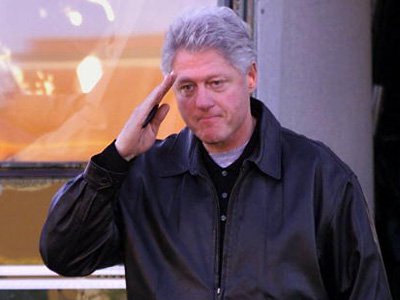
Perhaps we should step back and re-establish the fact and the image that the POTUS is a civilian and he (or she) should look and act like a civilian. Should we stop the blurring of the lines between civilian and military authority? Commander-in-Chief is a job position not a military rank. The CINC is only CINC of the military, not civilians. Is this militarization of our president an errosion of Constitutional liberty or simply a figurative gesture honor our military? I welcome your comments...



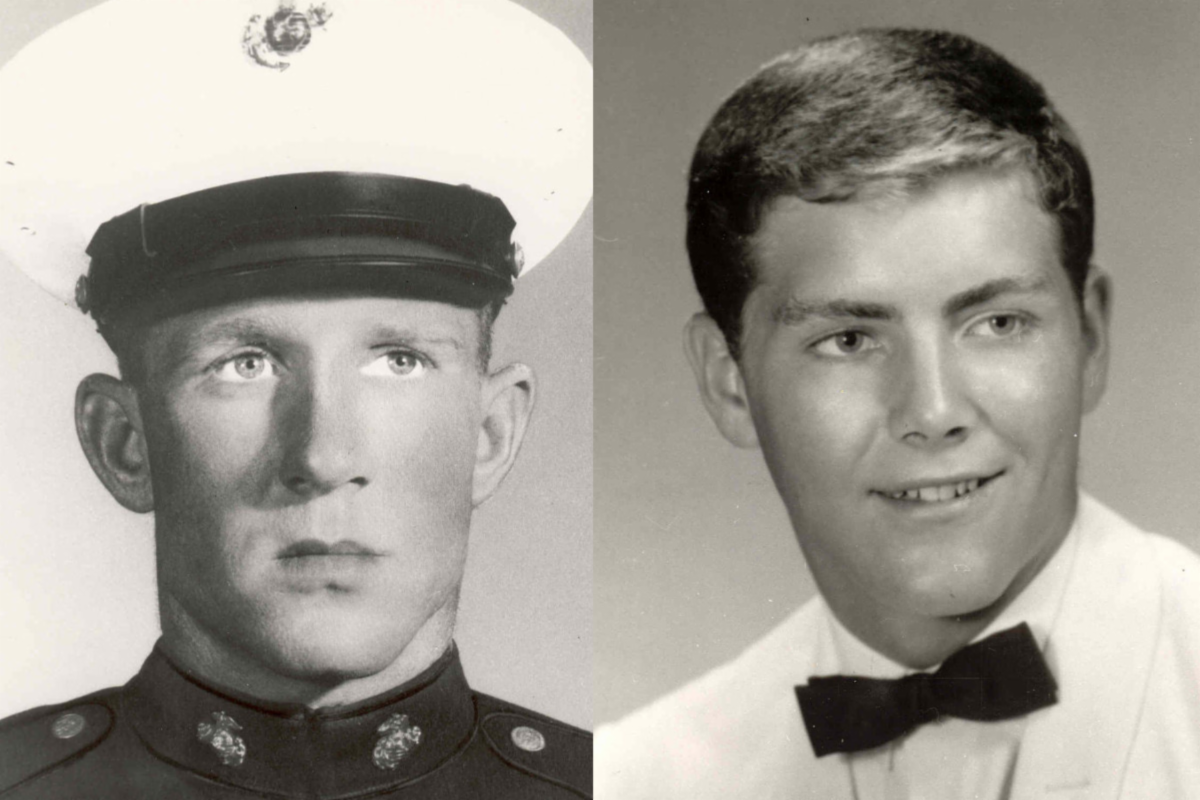
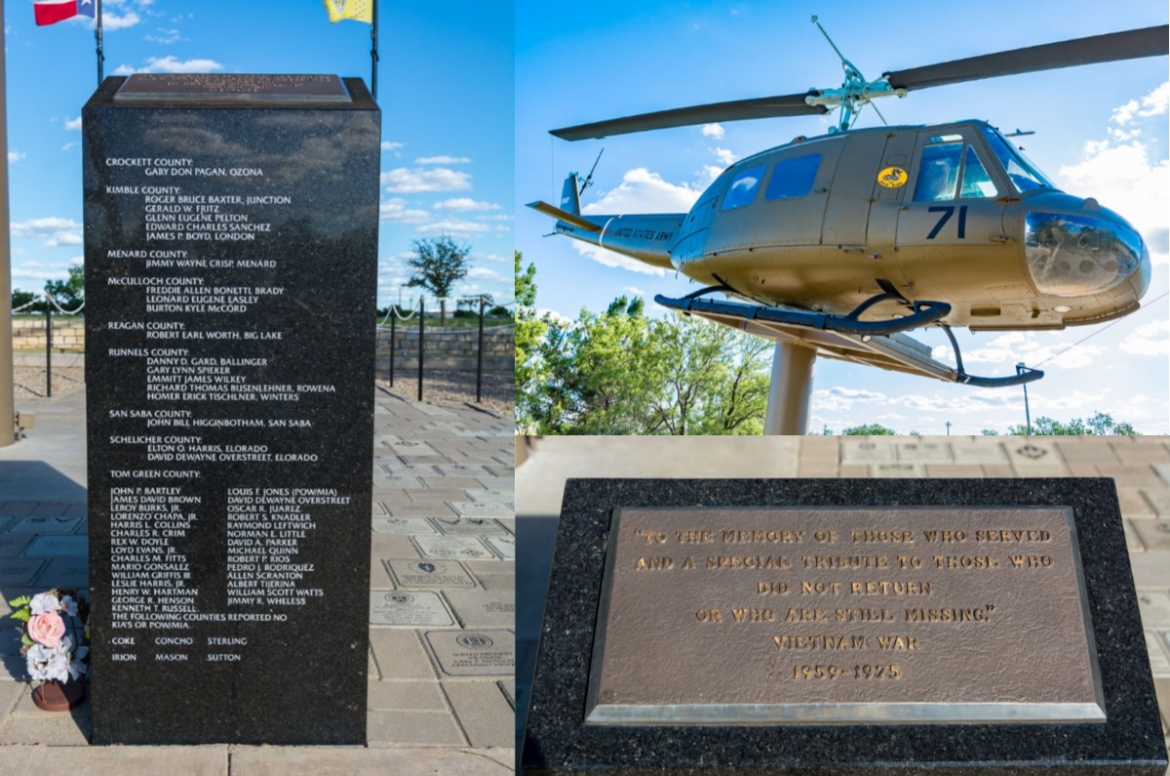
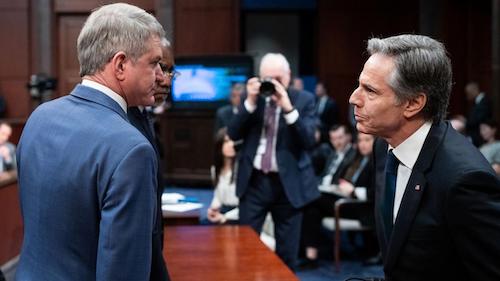

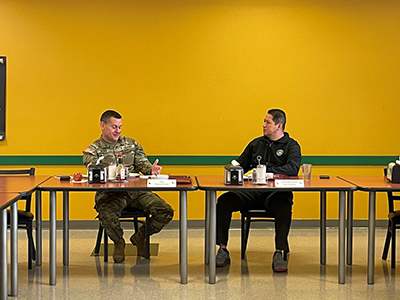

Comments
President returning as milatary salute.
Pages